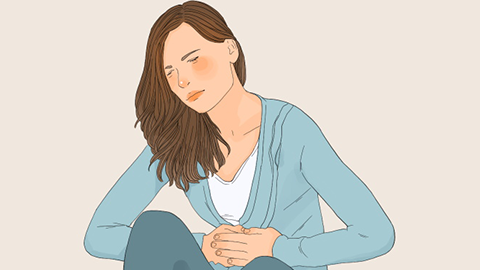What causes abdominal pain, loose stools, and excessive flatulence, and what should be done about it?
Abdominal pain, loose stools, and increased flatulence may be caused by improper diet, cold exposure to the abdomen, indigestion, irritable bowel syndrome (IBS), or chronic enteritis. These symptoms can be improved through dietary adjustments, keeping the abdomen warm, and medication. If symptoms persist or are accompanied by fever or bloody stools, prompt medical attention is necessary.
1. Improper Diet: Consuming excessive spicy, raw, cold, or gas-producing foods can irritate the gastrointestinal mucosa and increase digestive burden, leading to abdominal pain, loose stools, and increased gas. It is recommended to switch to a light and easily digestible diet, reduce intake of gas-producing foods, and maintain regular meal times to avoid overeating.
2. Cold Exposure to the Abdomen: Cold stimulation can cause spasms of gastrointestinal smooth muscles and disrupt intestinal motility, resulting in abdominal pain, loose stools, and increased flatulence. It is advised to wear warm clothing to protect the abdomen, apply a hot water bottle for warmth, and drink warm beverages to avoid cold or raw foods.

3. Indigestion: Slowed gastrointestinal motility leads to impaired digestion and absorption of food, causing fermentation and gas production. This results in abdominal pain, loose stools, increased flatulence, bloating, and reduced appetite. Follow medical advice to use medications such as domperidone tablets, lactase enzyme tablets, or Jianwei Xiaoshi oral liquid to relieve symptoms.
4. Irritable Bowel Syndrome (IBS): Triggered by stress or dietary factors, IBS causes gastrointestinal dysfunction and increased intestinal sensitivity, manifesting as abdominal pain, alternating diarrhea and constipation, and frequent gas passage. Under medical guidance, medications such as pinaverium bromide tablets, Bifidobacterium triple viable capsules, or montmorillonite powder may be used to improve symptoms.
5. Chronic Enteritis: Repeated bacterial or viral irritation causes chronic inflammation in the intestines, with mucosal congestion and edema, leading to abdominal pain, loose stools, increased gas, and mucus in stool. Under medical supervision, medications such as mesalazine enteric-coated tablets, sulfasalazine enteric-coated tablets, or Saccharomyces boulardii powder may be used to manage symptoms.
Maintain regular, light meals; avoid spicy, raw, cold, and gas-producing foods; keep the abdomen warm; engage in mild physical activity after meals to aid digestion; maintain a regular sleep schedule; and stay emotionally balanced to support gastrointestinal recovery.






